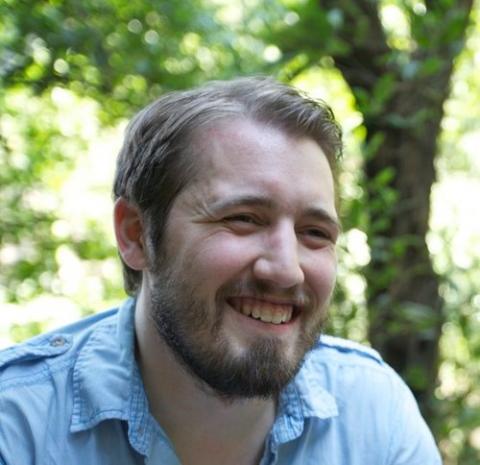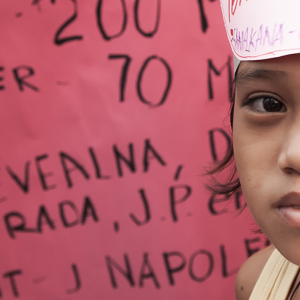
Eric Stoner is a co-founder and editor of Waging Nonviolence and an adjunct professor at St. Joseph’s University in Brooklyn, N.Y.
Posts By This Author
Why Is the U.S. Giving the Philippines' Military a Blank Check?
Religious leaders argue that increased U.S. funding and military presence stoke human rights abuses and regional instability.
THERE IS A DISTURBING sense of déjà vu in the Philippines. Thirty-seven years after the nonviolent People Power movement ended the brutal and kleptocratic 20-year reign of Ferdinand Marcos Sr., his only son and namesake sits comfortably in the presidential palace. Following in his father’s footsteps, President Ferdinand “Bongbong” Marcos Jr. is once again cozying up to the United States.
In 2012, the Obama administration began to “rebalance” U.S. military and trade agreements in Asia. Since 2014, the U.S. has had access to five military bases in the Philippines and trains Filipino soldiers under the Enhanced Defense Cooperation Agreement (EDCA) — all part of Obama’s “pivot to the Pacific.”
In February this year, Marcos agreed to allow the U.S. military to pre-position troops and weapons at another four bases. This gives the U.S. the largest military footprint it has had in the Philippines in 30 years, when a Filipino-led anti-colonial independence movement led to the removal of all permanent military bases in their country.
In its push to expand EDCA, the Biden administration said it would spend $82 million on projects at the first five bases. In addition, U.S. ambassador MaryKay Carlson announced $100 million in new foreign military financing for the Philippines “to use as it wishes.” The Philippines is already the largest recipient of U.S. military assistance in the region, receiving $1.14 billion in weapons and equipment since 2015. U.S. and Philippines government officials claim that the purpose of this growing U.S. military presence is to help with humanitarian crises and disaster relief, as well as to prepare for a future conflict with China, most likely over Taiwan.
Protecting the Gains of the Resurrection
An interview with Father Benjamin E. Alforque, convener of the church-based Filipino group Rise Up for Life and for Rights.
Father Benjamin E. Alforque is convener of the church-based Filipino group Rise Up for Life and for Rights. Alforque was interviewed via email in February by Eric Stoner.
Eric Stoner: Was there a tipping point that set Rise Up in motion?
Benjamin Alforque: The tipping point was when the killing of the poor started to include poor farmers and peasants who were leaders of the justice and peace groups and organizations, but who were [falsely] charged with being drug users or pushers.
Are people’s opinions of the drug war and extrajudicial killings changing? Many people thought it was okay to kill drug addicts and pushers. People felt safe that they could leave their homes at night to do their jobs without fear that a drug addict would barge into their huts and small homes, rape women, and kill families just to get money for drugs. They favored immediate execution because, after all, we have no rehabilitation facilities, the jails and prisons are full, and government has no money to spend for their incarceration and rehabilitation. But now, with the extent of the killing of the poor, many are fearful. They fear that they could be the next victim, because the police have a quota of drug-related deaths, and they could be the next one to fill the quota.
Do you see the Catholic Church taking a more active position? On Feb. 18, the church mobilized some 10,000 people to Walk for Life. Bishops have come into the open, telling the president that death is not the answer to the proliferation of drugs and addiction. This show of force by the Catholic Church against extrajudicial killings related to drugs [is also against] the move in Congress, with executive approval, to revive the death penalty.
The church could do more. It can open its facilities and resources for the positive care of drug addicts. In its pastoral program, dioceses, parishes, and church-based institutions could strengthen catechetical approaches and family life ministries to address the real social roots of addiction and other related maladies.
But more important, the church should walk with the poor in their struggle for substantial radical social transformation. She must fully give witness to the Vatican II documents, especially becoming more fully the church of the poor through basic ecclesial communities as agents of transformation. She must strengthen her pastoral program with the poor and not make her identity revolve around the sacraments and the liturgy that are emptied of their original social content for liberation-salvation. If the church lives more fully with the poor, then she can protect the poor while at the same time being a target with them. That is her cross and her martyrdom. There also lies her genuine participation in the resurrection of Jesus.
Where do you find hope? In my sermons I say, “You must rise up together and assert and protect the gains of the resurrection of Jesus, the gains that he has in store for all of us who believe in him!” The mass movement of the poor is where I find hope. They incarnate the passion-death-resurrection of Jesus. They relive the pristine experience of early Christianity in various ways for the event of God’s reign.
Christians Rise Up Against the 'Filipino Trump'
President Duterte has been called the 'Filipino Trump.' He's worse. But resistance is growing.

Freedom II Andres/ Flikr.com
LAST SUMMER, riding the global wave of anti-establishment right-wing populism that would several months later propel Donald Trump into the White House, Rodrigo Duterte took power in the Philippines. He campaigned on the promise that he would launch a brutal war against drugs, criminality, and corruption—like he did as mayor, when he sanctioned death squads that took more than 1,000 lives—and wasted no time implementing his agenda once elected. At the same time, he has deftly made overtures to the political parties on the Left, which has largely quieted their criticism.
As was the case in the 1980s—during the nonviolent People Power movement that toppled Ferdinand Marcos, the dictator who ruled the Philippines for more than two decades—this has left civil society, students, and faith-based organizations to lead the charge not only for social, economic, and environmental justice, but also against the rapidly growing number of drug-related killings.
In January, I traveled to the Philippines to better understand Duterte’s rise and to meet with those organizing to stop him. The international news is filled with headlines of the vicious campaign of extrajudicial executions. To explain his commitment to the cause, Duterte has positively compared himself to Adolf Hitler—saying that he would be “happy to slaughter” 3 million drug users—and pledged that the drug war will continue for his entire six-year term. To date, since he took office more than 8,000 people, or on average more than 30 a day, have been killed by police and so-called “vigilantes,” whom critics argue are often connected to state security forces.
As the drug-related killings mounted, a new ecumenical network of people of faith—including clergy from the Catholic Church, United Church of Christ, and the United Methodist Church—and groups such as Kalipunan ng Damayang Mahihirap (KADAMAY), the largest alliance of urban-poor organizations in the country, launched Rise Up for Life and for Rights in October.
Let's Hold Glenn Beck to His Pledge of Nonviolence
On his radio show last week, Glenn Beck read a vow of nonviolence, which he said he'd been working on for about a year, and pleaded his followers to take it as well. The pledge itself is actually quite good, and even Gandhian, at parts. Here is an excerpt:
Today, quarters of the Earth are endangered by tyranny, discrimination, barbarism, and subjugation by fellow man. With an understanding of basic rights and equal justice, we must remain loyal to God and deliver the rights which [God's] benevolence has bestowed upon us to those who have been denied the blessings of liberty, justice, and equality. More importantly, we must protect them from being robbed in the future, so that forever the world may be safe, and her people free from malevolence. Together, we must be prepared to do our duty no matter the cost and we must do so inexorably. We must march forth steadfast and unconquerable and defeat the forces of evil not by sword, but through our love for mankind and his creator.
Is a Boycott of Murdoch and News Corp. Possible?
 With the scandal around Rupert Murdoch growing by the day, a full-fledged boycott of News Corp. has been launched on the internet, according to the Washington Post.
With the scandal around Rupert Murdoch growing by the day, a full-fledged boycott of News Corp. has been launched on the internet, according to the Washington Post.
The website Boycott Murdoch also has Facebook and Twitter pages. While the boycott has received coverage on many mainstream news outlets, it has yet to gain much traction. The Facebook page has less than 700 fans and the Twitter page is approaching only 1,000 followers. To make even a small dent in Murdoch's bottom line, the boycott will need to metastasize, and quickly.
Pro-Democracy Forces in Bahrain Face Unique Challenges
Report From Afghanistan: The Human Toll of Obama's 'Good War'
The Human Toll
Counting the costs of Obama's 'good war.' A report from Afghanistan.


